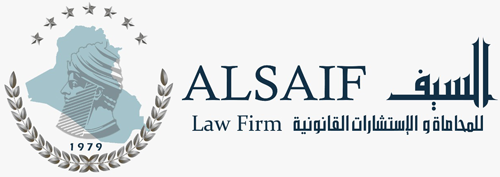Investments in Iraq
This law provides many advantages and guarantees for the investor, regardless of his nationality, with all the benefits and guarantees, and it also provides the Iraqi and foreign investor with a set of benefits and guarantees from the state to encourage the Iraqi and foreign investor.
foreign investment law in Iraq
It is permissible to own the Iraqi or foreign investor the lands allocated for the infrastructure projects belonging to the state and the public sector, and the Iraqi or foreign investor may purchase the land belonging to the private or mixed sector to build housing projects exclusively, if it does not conflict with the uses of the basic design.
The law allows the investor to extract the capital he brought into Iraq and its returns.
According to the law, the foreign investor is entitled to trade in the Iraqi market for securities with shares and bonds included in it.
The Iraqi and compulsory investor has the right to lease and lease real estate or musataha from the state or from the private and mixed sectors for the purpose of establishing investment projects on them for a period not exceeding (50) fifty years, renewable with the approval of the authority granting the license and the relevant party after taking into account the nature of the project and the economic feasibility of it, with the exception of constructed industrial projects In industrial cities, it owns under an allowance and according to instructions.
The investor has the right to transfer the ownership of the investment project in whole or in part during the period of the license to any other investor after obtaining the approval of the authority that granted the license, provided that 40% of the project is completed, and the new investor reaches the place of the previous investor in the rights and obligations arising from him in accordance with the law and the agreement concluded with him.
The developer or investor, in agreement with the concerned body, may deliver infrastructure services to the boundaries of the project in accordance with the agreement concluded with him.
The investor has the right to employ and employ non-Iraqi workers if it is not possible to employ an Iraqi who has the necessary qualifications and is able to carry out the same task according to controls issued by the Commission.
The foreign investor and non-Iraqi workers in investment projects are granted the right to reside in Iraq and facilitate his entry and exit to and from Iraq.
Not to confiscate or nationalize the investment project, except for what is done by a final court ruling.
Not to expropriate the investment project except for the public benefit in whole or in part and with a fair compensation.
The project that obtained an investment license from the Authority enjoys exemption from taxes and fees for a period of (10) years from the date of commencement of commercial operation for each stage of the establishment of the project and does not include exemption from customs duties, subject to clauses (first) and (second) of Article (17) of the Law .
Exemption of the residential investment project from parceling fees and real estate registration fees, including the fees for moving housing units to citizens (legal fees).
There are more exemptions included in the law and stipulated in the law in Chapter Five under the title of exemptions, as they represent privileges to the investor. The foreign investor enjoys additional benefits in accordance with international agreements between Iraq and his country, or multilateral agreements that Iraq has joined.
Why Investments in Iraq ?
Openness to Foreign Investment
The Government of Iraq's (GOI's) Council of Representatives passed an investment law, and the Presidency Council subsequently approved Law No.(13) in November 2006 with the following aims
• To promote investment and transfer modern technologies in order to contribute to the process of developing and enhancing Iraq and expanding and diversifying its production and service base.
• To encourage the Iraqi and foreign private sector to invest in Iraq by providing the required facilities for establishing investment projects and enhancing its competitive capacities in the local and foreign markets for projects included in this law.
• To develop human resources based on market demands and provide work opportunities for the Iraqis.
• To protect the rights and properties of investors.
• To expand exports and improve the balance of payments and the balance of trade of Iraq.
The new investment law grants the foreign investors great privileges and guarantees as Article(10) of that law states that "The Investor irrespective of his/her nationality shall enjoy all privileges, facilitations and guarantees and shall be subject to the obligations stated in this law. The Iraqi and foreign investor shall have the right for the purposes of housing projects, the use of the land for a sum to be determined between him and the land owner without land speculation according to conditions set forth by the National Commission for Investment and the approval of the Council of Ministers. The Commission shall facilitate the allocation of the required lands for the housing projects. The housing units shall be allocated for ownership by the Iraqis after the completion of the project."
The question in mind for all investors is what kind of benefits shall the foreign investor be granted? The investment Law No.
(13) answers that question and states in Article( 11 ) that the investor shall enjoy the following benefits :
First: The investor shall have the right to take out the capital he brought into Iraq and its proceeds in accordance with the provisions of this law and pursuant to the instructions of the Central Bank of Iraq in an exchangeable currency after paying taxes and debts to the Iraqi Government and all other authorities.
Second: The foreign investor shall have the right to: 1) trade in shares and bonds listed in the Iraqi Stock Exchange; and 2) form investment portfolios and bonds.
Third: Renting or leasing lands needed for the project for the term of the investment project, provided that it does not exceed 50 years renewable with the agreement of the Commission, and provided that the nature of the project and its benefit for the national economy is taken into consideration when determining the period.
Fourth: Insuring the investment project with any foreign or national insurance company it deems suitable.
Fifth: Opening accounts in Iraqi or foreign currency or both at a bank inside or outside Iraq for the licensed project.
The law also guarantees the foreign investors the right to:
• Employ and use non-Iraqi workers in case it is not possible to employ an Iraqi with the required qualifications and capable of performing the same task in accordance with guidelines issued by the Commission.
• Grant the foreign investor and non-Iraqis working in the investment projects the right of residency in Iraq and facilitating his/her entry and exit to and from Iraq.
• Non-seizure or nationalization of the investment project covered by the provisions of this law in whole or in part, except for projects on which a final judicial judgment was issued.
• Non-Iraqi technicians and administration employees working in any project shall have the right to transfer their salaries and compensations outside Iraq in accordance with the law after paying their dues and debts to the Iraqi government and all other entities.
Efficient Capital Markets and Portfolio Investment
The Central Bank of Iraq (CBI) is responsible for conducting monetary policy in Iraq. The CBI was re-organized by CPA Order No. 56 as a legal public entity that has financial and administrative independence. The Iraqi banking system includes seven state- owned banks, the two largest being Rafidain and Rasheed, which account for about 96 percent of banking sector assets. The vast majority of banking transactions, however, are confined to basic consumer transactions rather than business loans. There are also 20 private banks three foreign banks have also been licensed in Iraq.
The Trade Bank of Iraq (TBI) was established as an independent government entity under CPA Order No. 20 in 2003. TBI's main purpose is to provide financial and related services to facilitate the importation. The payments system began limited operation in August 2006, with five banks participating. It is anticipated that by year-end another six to eight banks will begin to participate as well.
The new GOI investment law allows for foreign investors to exchange shares and bonds listed in the Iraqi Stock Exchange (ISX). It also allows foreign investors to form investment portfolios. Trading transactions and buy and sell orders are presently written by hand on grease boards in trading sessions. This system does not always allow for full transparency in terms of timing of market participants or knowledge of who has placed the bid. The coming automation of the ISX will provide much greater transparency as well as pave the way for foreign investment on the exchange. Bilateral Investment Agreements and Regional Cooperation
Iraq is a signatory to thirty-two bilateral, and nine multilateral agreements within the Arab League arrangements on Investments Promotion and Protection (IPPA). Some of the bilateral agreements with other countries include Afghanistan, Bangladesh, India, Iran, Japan, Jordan, Kuwait, Mauritania, Republic of Korea, Sri Lanka, Syria, Tunisia, Turkey, the United Kingdom, Vietnam and Yemen. These agreements include general provisions on promoting and protecting investments, including clauses on profit repatriation, access to arbitration and dispute settlements, fair expropriation rules and compensation for losses.
In addition, Iraq has bilateral free trade area (FTA) agreements with the following eleven countries: Algeria, Egypt, Jordan, Lebanon, Oman, Qatar, Sudan, Syria, Tunisia, Yemen, and the United Arab Emirates. Iraq is also a signatory to several multilateral agreements, including the "Taysir"
agreement with Arab countries dated February 27, 1982, and ratified in January 11, 1982.
On July 11, 2005, Iraq and the U.S. signed a Trade and Investment Framework Agreement, a first step toward creating liberalized trade and increasing investment flows between the U.S. and Iraq.OPIC and Other Investment Insurance Programs
The Overseas Private Investment Corporation (OPIC) finances a variety of investment projects in Iraq. Some of OPIC's basic programs include structured finance projects, political risk insurance, investment funds and financing for small and medium- sized enterprises. In addition, OPIC and the Government of Iraq have executed an Investment Incentive Agreement (IIA).

